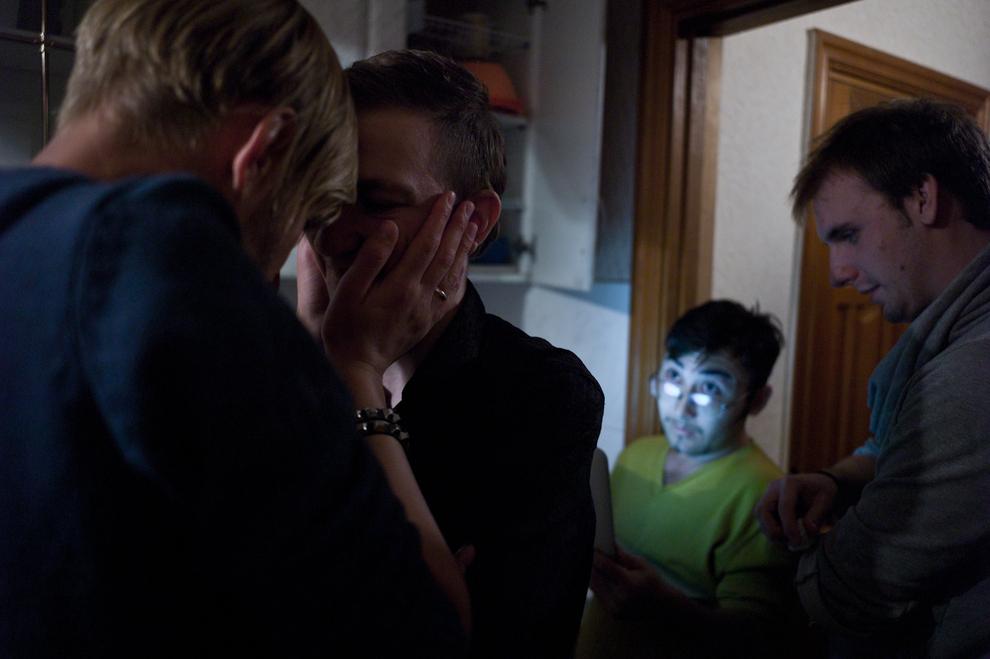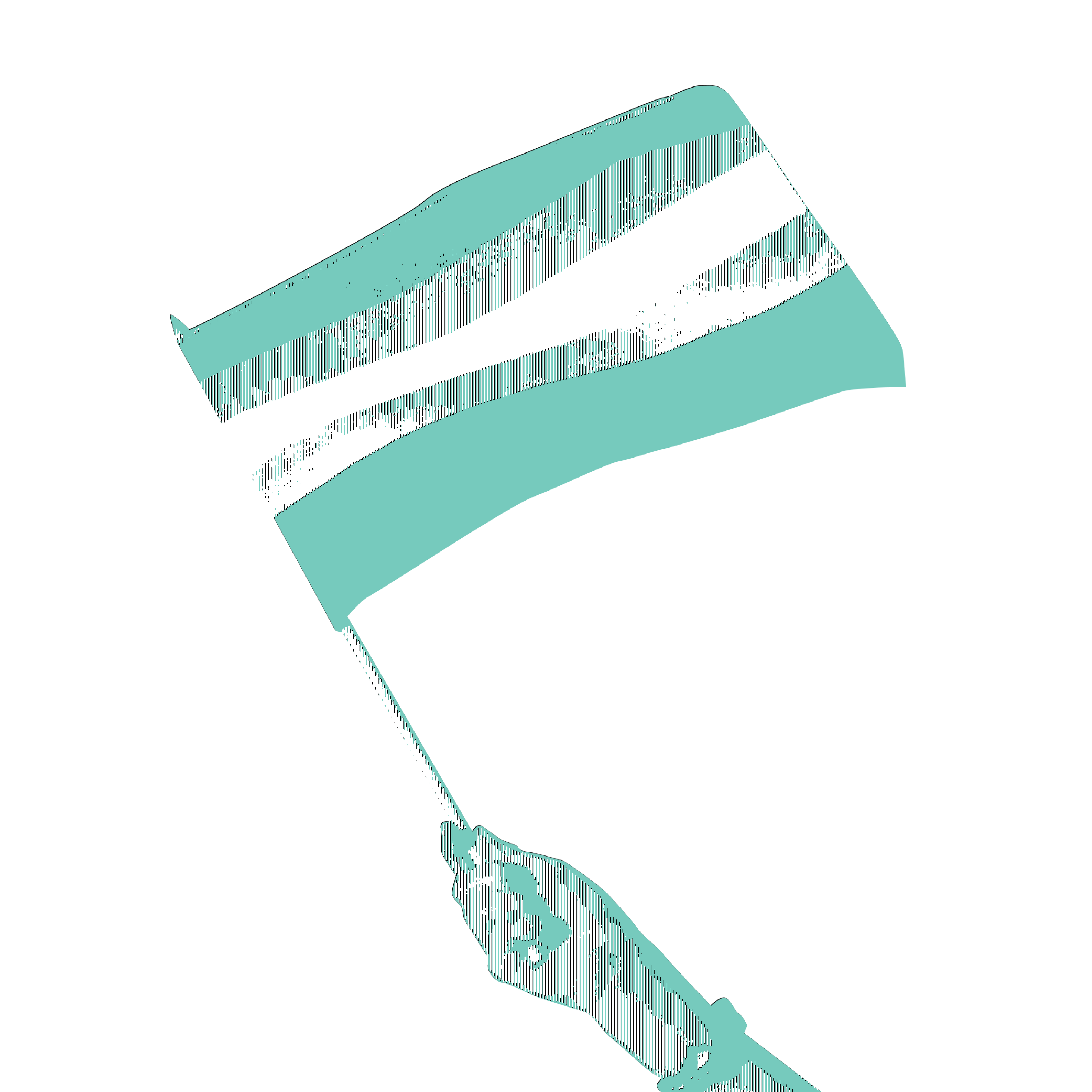
Dmitry Chizhevsky was not an LGBT activist—he never went to rallies or protests. On November 3, 2013, he came to a Rainbow Coffee party in central Saint Petersburg to meet other young gays, lesbians and friendly heterosexuals for an informal community meeting. As he was leaving, he saw two men with covered faces arguing with a young activist at the entrance. Then he felt a sharp pain in the eye and heard shots.
A few hours later in the hospital he underwent his first of three surgeries. Yet doctors were not able to save his vision in his left eye.
For Russian LGBT groups this attack was a wake-up call, as it wasn't the usual egg-throwing by religious zealots at a rally, and, moreover, this community meeting was not advertised. Some are calling it the beginning of the pogroms.
The meeting itself was held at LaSky, an NGO offering HIV counseling and support for gay men. Similarly to other LGBT-related NGOs the group regularly receives hate mail and threats. Just before the attack another LGBT support group had a fire cracker thrown into its office, as well as the word "faggot" scrawled over the door. Online in social media, there's a number of anti-gay groups regularly posting personal information about activists, as well as threats and even plans for next attacks.
In a statement LaSky says the attack was a "result of escalation of homophobic climate in the city."
"This attack aimed at the office of organization for prevention of HIV and STDs is an indication that pogrom-makers progressed from attacking activists during street rallies to attacks on closed private social events."
In Russia LGBT activists are no strangers to violence and hatred; it is a simple fact of life. Yet until this incident repercussions appeared to be random and not as well thought-out. Following the attack Chizhevsky writes in his blog: "The blame for what happened to my eye lies not with those who attacked me but with every politician who has supported and stirred the homophobic hysteria in recent months. If you had treated citizens like human beings, if you had not stuffed the heads of these guys with your hatred, none of this would have happened."
One of the politicians he mentions is Vitaly Milonov, member of Vladimir Putin's United Russia party and a deputy at the St Petersburg Legislative Assembly, author of the city's 2012 law prohibiting "promotion of sodomy, lesbianism, bisexuality and transgenderism to minors."
In response to Chizhevsky's claims, in an interview with a local site Fontanka.ru, Milonov says the attackers were provoked by LGBT activists themselves:
"LGBT NGOs are tiring with continuously eccentric escapades, rudeness and acts of provocation. And unfortunately, not everybody manages to stay calm, some behave inappropriately. But to say that some of our activists went with pneumatic guns to a homosexual hellhole... It's a great pity that this guy got it in the eye, but I think it was a planned act of provocation."
In the same interview Milonov calls homosexuality "disgusting and repulsive, no different to murder and lies," and dismisses LGBT rights as "the rights of sickos and perverts."
Two men who attacked LaSky were carrying baseball bats and pneumatic pistols and have badly bruised another activist at the meeting. When the police arrived they at first refused to register a crime, and after they did it was classified as "hooliganism," rather than a pre-meditated hate crime. Now, months into the investigation, Chizhevsky says there is no progress at all.
A couple of weeks after the attack activists in Moscow asked the city government for permission to hold a 20-person rally calling for a proper investigation, but the authorities refused, citing a Russian Constitution clause prohibiting applying pressure on courts and legal system.
Now many gays and lesbians have started to think more seriously about their personal safety and upgrading security measures for their events. Chizhevsky and many others are calling for wide-spread self-defense classes for the community.
The attack came just a few months after a controversial law took effect, criminalizing what it calls "propaganda of non-traditional sexual relations among minors." Its ambiguity and selective use effectively make it illegal for any kind of gay event to take place or to even mention acceptance of homosexuality in public.
As public opinion polls show Russian society is not very tolerant toward gays and lesbians, this wave of attacks is seen by many as a way for Vladimir Putin's government to improve dwindling popular support.
Despite international condemnation of what is happening in the country and the refusal of most Western leaders to attend Sochi Winter Olympics in February 2014, the Russian president continues to make such remarks:
"Gay visitors can feel safe and free here. But please leave our children in peace."





